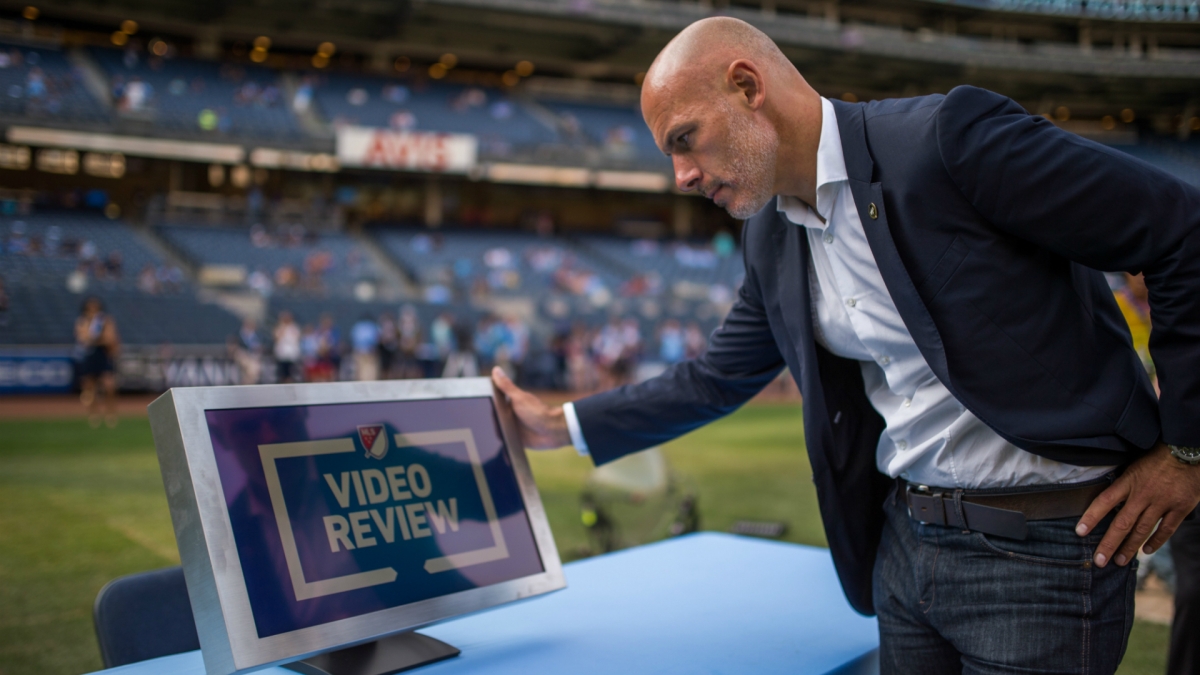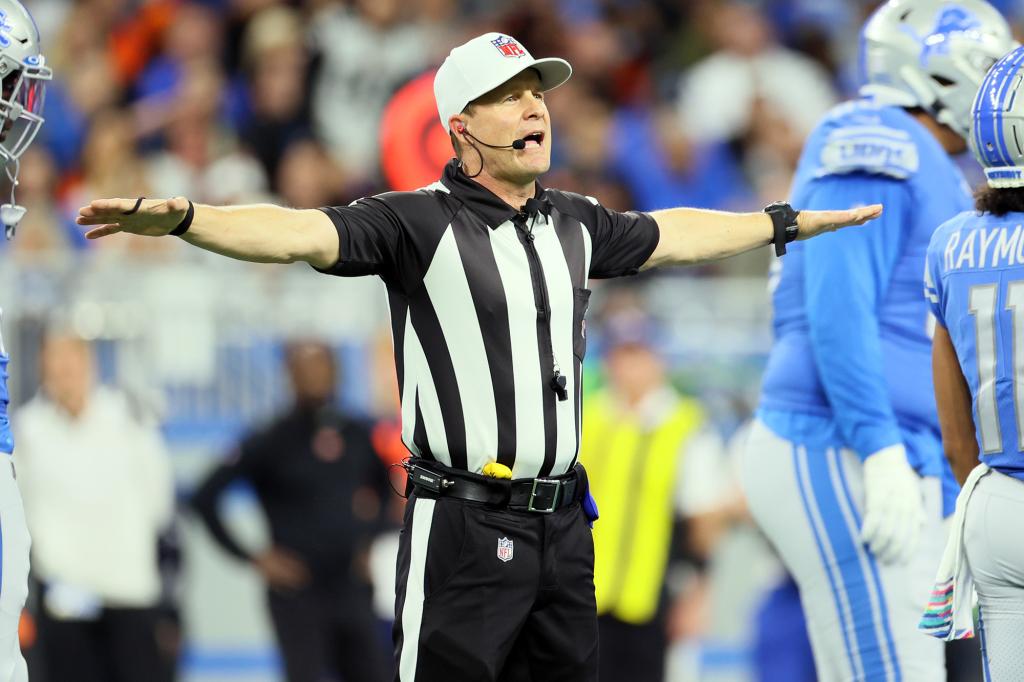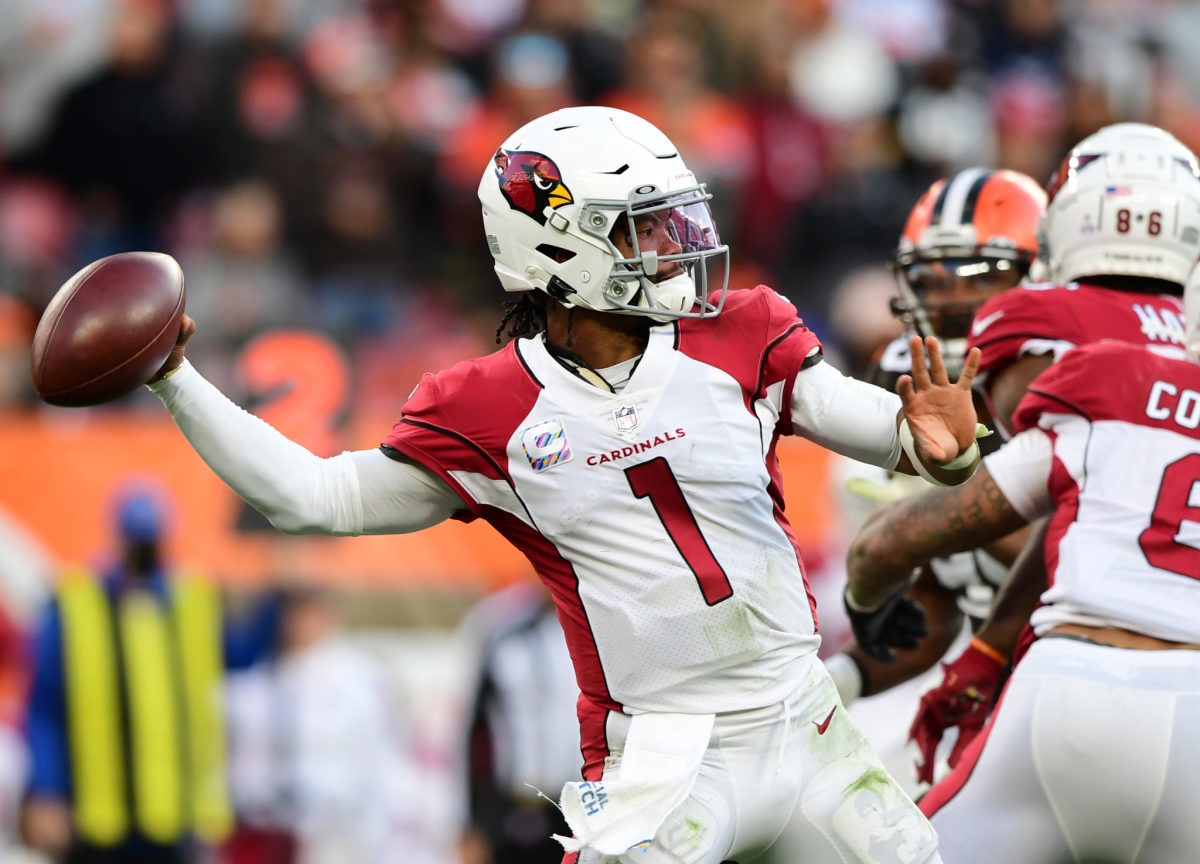Proof that every initial decision is made in a vacuum. Does the MLS executive head ever roll something out that’s beyond Alpha Tested???"In a search for consistency and in an effort to streamline the Video Review process and execution, Major League Soccer and PRO Referees are looking into the feasibility of creating a central Video Operations Room (VOR)."
PRO Referees and MLS Looking At Centralizing VAR
Howard Webb, General Manager of PRO referees, met the Montreal media earlier today in a round table format.sportspodcastingnetwork.com
MLS Officiating: it's shit-tastic!
- Thread starter Midas Mulligan
- Start date
You are using an out of date browser. It may not display this or other websites correctly.
You should upgrade or use an alternative browser.
You should upgrade or use an alternative browser.
"In a search for consistency and in an effort to streamline the Video Review process and execution, Major League Soccer and PRO Referees are looking into the feasibility of creating a central Video Operations Room (VOR)."
PRO Referees and MLS Looking At Centralizing VAR
Howard Webb, General Manager of PRO referees, met the Montreal media earlier today in a round table format.sportspodcastingnetwork.com
They really do read our posts!
This thread really hasn't been updated in a while since it's in the MLS section and a lot of the shit-tastic stuff has happened to us.
I continue to believe that the perception that MLS officials are uniquely bad is a function of confirmation bias and perception.

 nypost.com
nypost.com

NFL’s Week 6 officiating was an embarrassment
In a season already marred by subpar officiating, Sunday’s slate of games managed to stand out.
I don't think it's unique to MLS - a lot of leagues have really bad refs. EPL is notorious for it too hahI continue to believe that the perception that MLS officials are uniquely bad is a function of confirmation bias and perception.

NFL’s Week 6 officiating was an embarrassment
In a season already marred by subpar officiating, Sunday’s slate of games managed to stand out.nypost.com
They didn't even include (and I hate hyperbole) probably the worst roughing the passer call I've ever seen.I continue to believe that the perception that MLS officials are uniquely bad is a function of confirmation bias and perception.

NFL’s Week 6 officiating was an embarrassment
In a season already marred by subpar officiating, Sunday’s slate of games managed to stand out.nypost.com

Look: Fans Are Furious With This Laughable Roughing The Passer
Today was not a good day for the Cleveland Browns even before they got docked for a ridiculous roughing the passer penalty. Cleveland saw Odell Beckham Jr.
I continue to believe that the perception that MLS officials are uniquely bad is a function of confirmation bias and perception.

NFL’s Week 6 officiating was an embarrassment
In a season already marred by subpar officiating, Sunday’s slate of games managed to stand out.nypost.com
It really seems like fans across every league in every sport feel this way. Granted there are some sports I don't follow quite as closely as soccer, NFL, and NCAAB, so perhaps I am lacking some appropriate context from a more general standpoint.I don't think it's unique to MLS - a lot of leagues have really bad refs. EPL is notorious for it too hah
But at some point, should we as fans adjust our perceptions and expectations from refereeing? I know that's probably an unrealistic ask considering as fans, we care deeply about our teams and will hold onto when calls go against us.
But I've consistently seen takes from many leagues that "the officiating is now at an atrocious standpoint" or it is "unacceptable" or "holding leagues/sports back".
Trying to strip away recency bias and also consider that as the years move on, we have more and more camera angles available to us, slow motion, higher definition, etc. Is it really that bad?
I'm not trying to say we shouldn't critique refs or certain calls and it drives me most nuts seeing some refs misapply rules, show inconsistencies, etc. I'm just not sure the refereeing is as historically bad, or relatively bad compared to other leagues/sports as we make it out to be.
PRO Statement: MIA vs PIT – Professional Referee Organization ®
 proreferees.com
proreferees.com
Miami FC vs Pittsburgh Riverhounds SC
FIU Soccer Stadium (7:30PM ET)
REF: JJ Bilinski
AR1: Justen Lopez
AR2: Juan Pablo Casas
4TH: Kyle Cividanes
That's pretty much where I am.It really seems like fans across every league in every sport feel this way. Granted there are some sports I don't follow quite as closely as soccer, NFL, and NCAAB, so perhaps I am lacking some appropriate context from a more general standpoint.
But at some point, should we as fans adjust our perceptions and expectations from refereeing? I know that's probably an unrealistic ask considering as fans, we care deeply about our teams and will hold onto when calls go against us.
But I've consistently seen takes from many leagues that "the officiating is now at an atrocious standpoint" or it is "unacceptable" or "holding leagues/sports back".
Trying to strip away recency bias and also consider that as the years move on, we have more and more camera angles available to us, slow motion, higher definition, etc. Is it really that bad?
I'm not trying to say we shouldn't critique refs or certain calls and it drives me most nuts seeing some refs misapply rules, show inconsistencies, etc. I'm just not sure the refereeing is as historically bad, or relatively bad compared to other leagues/sports as we make it out to be.
They mostly get things right.
But when they're bad, it's often spectacularly so.
But it's probably not as bad as you think, because of a tendency to remember the most egregious mistakes.
Most attempts to fix things offer little actual improvement except for pure tech fixes like PL goal line tech and electronic eye strike zones.
My views on fans and perceptions of ref failures -- and indeed my obsession with perception and confirmation bias generally -- were heavily influenced when I went to a lot of Knick games in the 90s. They didn't always show replays of dubious calls on the big screen at MSG, and even when they did, it's not as clear or informative as watching from close up on the TV. I left almost every game certain that 5-6 calls went unfairly against the Knicks, but then I'd watch the game replay on MSG network later and realize almost every time that it was not true. That led me to think about it more. How many times do you watch a play in real time on TV, and immediately think your team was screwed on a call only to watch a replay 10 seconds later and realize the ref got it right? It happens to me constantly. We go through life with a filter we don't even realize that clouds everything we experience. Sports is actually unique in that replay confronts you and pushes you to reconsider your initial impression almost immediately. But how many people use the experience of having their first impression repeatedly proven wrong to reconsider all their initial judgments -- not just in sports but everywhere? Way too many people still complain that their team is uniquely mistreated, or their league has uniquely poor refs, even though by definition most such claims have to be wrong. It's both the most pointless and boring thing to wade through those takes.
And on top of that, even when we try to truly be objective in calls that go our way, we often seem to assign less weight to those than the calls that go against our teams.That's pretty much where I am.
They mostly get things right.
But when they're bad, it's often spectacularly so.
But it's probably not as bad as you think, because of a tendency to remember the most egregious mistakes.
Most attempts to fix things offer little actual improvement except for pure tech fixes like PL goal line tech and electronic eye strike zones.
My views on fans and perceptions of ref failures -- and indeed my obsession with perception and confirmation bias generally -- were heavily influenced when I went to a lot of Knick games in the 90s. They didn't always show replays of dubious calls on the big screen at MSG, and even when they did, it's not as clear or informative as watching from close up on the TV. I left almost every game certain that 5-6 calls went unfairly against the Knicks, but then I'd watch the game replay on MSG network later and realize almost every time that it was not true. That led me to think about it more. How many times do you watch a play in real time on TV, and immediately think your team was screwed on a call only to watch a replay 10 seconds later and realize the ref got it right? It happens to me constantly. We go through life with a filter we don't even realize that clouds everything we experience. Sports is actually unique in that replay confronts you and pushes you to reconsider your initial impression almost immediately. But how many people use the experience of having their first impression repeatedly proven wrong to reconsider all their initial judgments -- not just in sports but everywhere? Way too many people still complain that their team is uniquely mistreated, or their league has uniquely poor refs, even though by definition most such claims have to be wrong. It's both the most pointless and boring thing to wade through those takes.
Which I think greatly contributes to what you say above about too many people complaining their team is uniquely mistreated.
When they are major decisions (i.e., red cards, penalties, egregious offsides on a goal, etc.) that go our teams' way, we often acknowledge but also with an implied "so what" whereas major decisions that go against us is met with very loud yelling/complaining/we were robbed, etc.
Furthermore, and I think perhaps the greater contributer to this are the little decisions, the little mistakes along the way that go our teams' way (yellow cards, foul calls, offsides but no goal was scored, corner or throw in decisions). Those are often glossed over. Maybe they're acknowledged in real time but they're shortly forgotten about after the fact. Whereas, if they go against our team, they stack on top of each other and create this mountain of "bullshit calls" that shows our team was jobbed.
And on top of that, even when we try to truly be objective in calls that go our way, we often seem to assign less weight to those than the calls that go against our teams.
Which I think greatly contributes to what you say above about too many people complaining their team is uniquely mistreated.
When they are major decisions (i.e., red cards, penalties, egregious offsides on a goal, etc.) that go our teams' way, we often acknowledge but also with an implied "so what" whereas major decisions that go against us is met with very loud yelling/complaining/we were robbed, etc.
Furthermore, and I think perhaps the greater contributor to this are the little decisions, the little mistakes along the way that go our teams' way (yellow cards, foul calls, offsides but no goal was scored, corner or throw in decisions). Those are often glossed over. Maybe they're acknowledged in real time but they're shortly forgotten about after the fact. Whereas, if they go against our team, they stack on top of each other and create this mountain of "bullshit calls" that shows our team was jobbed.
Somewhat related to the little things, I've never understood why among all the technology options available to help refs the one most sports are choosing to start with is VAR. Why not implement things like goal-line technology or even sideline or offside technology. Look at all the things refs need to track and automate everything they possibly can so the refs have less to track allowing them to focus on a smaller portion of rules and likely do a better job of it. It's probably less impactful in soccer but imagine in basketball if you said to a ref, the cameras in the area are going to track: out of bounds, goaltending, 3pt vs 2pt, defensive 3-second violations, etc. You don't have to pay attention to any of those things anymore just focus on calling fouls, or just track who the ball went off a system will tell you if it's fully over the line. The refs have a better chance to get it right because they have less to track and there are also fewer things for the fans to be disgruntled about because given high enough quality technology certain calls would never be wrong again.
This is a great post and entirely true. We owe it to ourselves to understand the various cognitive biases that shape each of our perceptions so that we can take them into account when forming impressions about the world.That's pretty much where I am.
They mostly get things right.
But when they're bad, it's often spectacularly so.
But it's probably not as bad as you think, because of a tendency to remember the most egregious mistakes.
Most attempts to fix things offer little actual improvement except for pure tech fixes like PL goal line tech and electronic eye strike zones.
My views on fans and perceptions of ref failures -- and indeed my obsession with perception and confirmation bias generally -- were heavily influenced when I went to a lot of Knick games in the 90s. They didn't always show replays of dubious calls on the big screen at MSG, and even when they did, it's not as clear or informative as watching from close up on the TV. I left almost every game certain that 5-6 calls went unfairly against the Knicks, but then I'd watch the game replay on MSG network later and realize almost every time that it was not true. That led me to think about it more. How many times do you watch a play in real time on TV, and immediately think your team was screwed on a call only to watch a replay 10 seconds later and realize the ref got it right? It happens to me constantly. We go through life with a filter we don't even realize that clouds everything we experience. Sports is actually unique in that replay confronts you and pushes you to reconsider your initial impression almost immediately. But how many people use the experience of having their first impression repeatedly proven wrong to reconsider all their initial judgments -- not just in sports but everywhere? Way too many people still complain that their team is uniquely mistreated, or their league has uniquely poor refs, even though by definition most such claims have to be wrong. It's both the most pointless and boring thing to wade through those takes.
Michael Lewis (author of Liar's Poker, Moneyball, etc.) did a whole season on "referees" in his Against the Rules podcast. Much of this was on non-sports referees, but it started with the ones in basketball. An interesting takeaway involved two simultaneous trends. The quality of officiating in the NBA has been rising and is higher than ever. The amount of fan complaints and misbehavior around missed calls is also rising and higher than ever.
I think we need to talk about just how much the introduction of VAR has changed how the game is refereed and how we perceive it.
Back in the day before VAR, if we got a wrong call on the field it could be chalked up to the ref being a human being and missing it. Stuff happens, people aren't perfect, and most fans (I think) understood that. Not saying people weren't upset with refs years ago, but most mistakes were understandable. Refs tried their best to get the calls right, knowing that they only had 1 chance to get it right live.
Now with VAR, things have changed. There are 6 referees working every MLS game: 1 center ref, 2 ARs on the sidelines, a 4th official, and 2 VAR refs offsite. ARs know that VAR is there to review offside calls, so they are much less likely to call offside than they were before VAR. Center refs seem more card-happy than they were before, knowing that if they made an egregious error, VAR may step in and ask them to review.
The purpose of introducing VAR was to correct the few obvious mistakes that happen during games. It's turned into a frame-by-frame s-show that takes forever and still misses obvious calls (see Cincy vs Orlando from this weekend, 93' obvious pen for Cincy reviewed and not given). PRO really needs to rein in VAR and make it clear that the only reason VAR should be used is to correct obvious mistakes, not parsing apart frame by frame trying to justify the call.
Back in the day before VAR, if we got a wrong call on the field it could be chalked up to the ref being a human being and missing it. Stuff happens, people aren't perfect, and most fans (I think) understood that. Not saying people weren't upset with refs years ago, but most mistakes were understandable. Refs tried their best to get the calls right, knowing that they only had 1 chance to get it right live.
Now with VAR, things have changed. There are 6 referees working every MLS game: 1 center ref, 2 ARs on the sidelines, a 4th official, and 2 VAR refs offsite. ARs know that VAR is there to review offside calls, so they are much less likely to call offside than they were before VAR. Center refs seem more card-happy than they were before, knowing that if they made an egregious error, VAR may step in and ask them to review.
The purpose of introducing VAR was to correct the few obvious mistakes that happen during games. It's turned into a frame-by-frame s-show that takes forever and still misses obvious calls (see Cincy vs Orlando from this weekend, 93' obvious pen for Cincy reviewed and not given). PRO really needs to rein in VAR and make it clear that the only reason VAR should be used is to correct obvious mistakes, not parsing apart frame by frame trying to justify the call.
This was a goal on the field and then overturned as a foul on Dike...
This was a yellow card on the field and no video review...
This was a yellow card on the field and no video review...
Dike call looked like a foul to me.
Watched the tackle live, and yep, that was a red. Notably, there was 1-2 earlier calls that were borderline reds that the ref only gave a yellow. That may have influenced his decision. Still, this was not borderline and should have been a straight sending off.
Watched the tackle live, and yep, that was a red. Notably, there was 1-2 earlier calls that were borderline reds that the ref only gave a yellow. That may have influenced his decision. Still, this was not borderline and should have been a straight sending off.
lol what the actual hell is VAR there for if not for that?Not a handball on the field. No video review.
If you're LA Galaxy you're pissed off right about now. SKC maybe too but not to the same level, I think.
